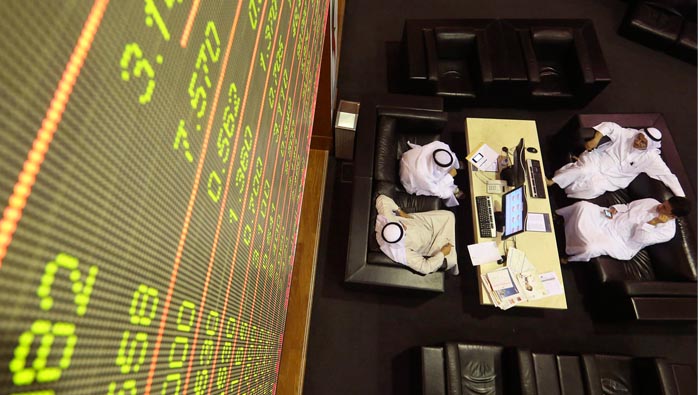
Dubai: Saudi Arabian stocks led a retreat across Gulf equities as trading volumes plunged. Four benchmark gauges in the six-nation Gulf Cooperation Council (GCC) declined, with Bloomberg’s GCC 200 Index poised for its longest losing streak in two months.
Saudi Arabia’s Tadawul All Share Index dropped 0.9 per cent in Riyadh, as trading volumes languished 38 per cent below the average. Dubai’s DFM General Index lost 0.8 per cent as about 123 million shares were traded, 59 per cent below the six-month average.
"After last week’s excitement fueled by foreign inflows, with a few exceptions, things are dull today,” said Akber Khan, who manages $850 million as senior director of asset management at Al Rayan Investment in Doha. "It’s a Sunday in the midst of summer with few results in the region. Volumes are unsurprisingly poor.”
Stock gauges in Dubai, Abu Dhabi, Qatar and Kuwait posted a third week of gains in the five days through Thursday as prospects for stimulus in major economies boosted demand for riskier emerging-market assets. Investors have since moderated their expectations after the Bank of Japan ruled out directly financing government debt and the European Central Bank held back monetary expansion.
Oil declines
The declines in the GCC on Sunday also follow a drop in the price of oil, with Brent crude falling 4 percent in the week to $45.69 per barrel. The GCC is home to about a third of the world’s proven oil reserves and equities are closely correlated to crude prices.
Qatar’s QE Index retreated 0.5 per cent, declining for a third day, the worst streak in more than a month. Abu Dhabi’s ADX General Index fell 0.5 per cent. Kuwait’s SE Price Index bucked the drop, adding 0.1 per cent as Bahrain’s BB All Share Index was little changed.
Shares in Elbit Systems gained 1.6 per cent to the highest level since April on a closing basis. The company known for making drones and avionics systems is close to buying some assets from Odebrecht Defesa & Tecnologia in Brazil, according to two people familiar with the matter.
The yield on Israel’s 6.25 per cent benchmark bonds due October 2026 fell three basis points, the biggest drop on a closing basis since July 10, to 1.72 per cent. The shekel on Friday strengthened for an eighth day against a basket of currencies, including the U.S. dollar and the euro, the longest gaining streak since June 2014.